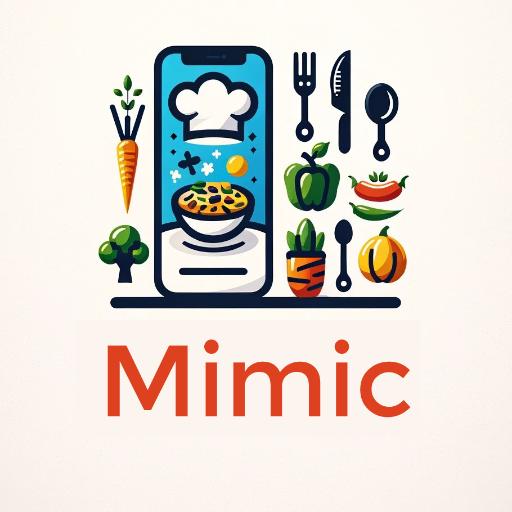GPT Course Creator-AI-driven course creator tool.
AI-Powered Course Creation and Design.
Help me structure a course on
What's the best way to teach
I need information on
How do I develop a lecture about
Related Tools
Load More20.0 / 5 (200 votes)
Introduction to GPT Course Creator
GPT Course Creator is a specialized AI tool designed to assist educators, instructional designers, and content developers in structuring and organizing educational materials for a wide range of subjects and educational levels. Its core function is to facilitate the creation of online courses by providing tailored content suggestions, course structures, and instructional strategies. For instance, if a university professor is designing a new curriculum for a graduate-level course on artificial intelligence, GPT Course Creator can offer a detailed syllabus, suggest key readings, propose lecture topics, and even generate quiz questions based on the latest research in the field. The tool is built to be versatile and adaptable, making it suitable for diverse educational settings, whether for academic institutions, corporate training, or online learning platforms.

Key Functions of GPT Course Creator
Course Structuring and Syllabus Design
Example
An educator creating a new course on data science can use GPT Course Creator to outline the course, suggest a week-by-week breakdown of topics, and recommend readings and assignments.
Scenario
A university professor is tasked with developing a 12-week course on data science. Using GPT Course Creator, the professor receives a detailed course outline that includes weekly topics such as 'Introduction to Data Science,' 'Data Cleaning and Preprocessing,' and 'Machine Learning Algorithms.' The tool also suggests appropriate textbooks, research articles, and practical exercises for each topic.
Lecture Content Development
Example
A corporate trainer preparing a series of workshops on leadership can leverage GPT Course Creator to draft lecture notes, create presentation slides, and generate discussion questions.
Scenario
A corporate trainer needs to develop a leadership workshop series for mid-level managers. GPT Course Creator provides a comprehensive set of lecture notes on key leadership theories, helps design slides that visually represent these concepts, and suggests engaging discussion questions to facilitate group interaction.
Assessment and Evaluation Design
Example
An online course instructor can use GPT Course Creator to design quizzes, exams, and assignments that accurately assess student understanding.
Scenario
An online instructor is developing a final exam for a course on modern European history. GPT Course Creator generates a set of multiple-choice questions, essay prompts, and short-answer questions that cover all major topics discussed in the course, ensuring a comprehensive assessment of student learning.
Target User Groups for GPT Course Creator
Educators and Professors
University educators and professors who need to develop, revise, or enhance course materials would benefit greatly from GPT Course Creator. The tool can save time by providing well-structured course outlines, lecture content, and assessments, allowing educators to focus more on teaching and student interaction.
Corporate Trainers and HR Professionals
Corporate trainers and HR professionals involved in employee development and training programs can use GPT Course Creator to design effective training modules. The tool helps in creating engaging content that meets specific learning objectives, ensuring that employees acquire the necessary skills and knowledge.

Guidelines for Using GPT Course Creator
Step 1
Visit aichatonline.org for a free trial without login, no need for ChatGPT Plus.
Step 2
Identify your course objectives and subject matter to effectively utilize the tool’s course structuring capabilities. Clearly defining your needs will enhance the relevance of the suggestions and materials generated by GPT Course Creator.
Step 3
Use the platform’s interface to input the course topics, audience level, and specific requirements. This helps in creating tailored course content that aligns with your educational goals.
Step 4
Review and refine the generated course structure, content, and learning objectives. GPT Course Creator allows customization, so you can adjust the materials to fit your unique teaching style or institutional standards.
Step 5
Incorporate multimedia, assessments, and interactive elements as recommended by the tool. GPT Course Creator often suggests additional resources and interactive components to make your course more engaging.
Try other advanced and practical GPTs
幻覺管理局
AI-powered Fact-checking and Hallucination Detection

Zorro Trader lite-C Coding Mentor
AI-Powered lite-C Coding Assistance

Christianity Scholar
AI-powered Christian knowledge at your fingertips.

Jimmy Jumbo's Knightmares
AI-powered dream adventure game

Cooking Assistant | Recipe Food Generator-Mimic-AI
AI-Powered Recipe and Meal Planner

Bayesian GPT
AI-Powered Bayesian Reasoning Tool

The Mental Health Helper
AI-powered support for your mental well-being.

Morpheus
AI-powered tool for thought-provoking insights.

Research Proposal Writer
AI-powered research proposal creation tool.

Heading 1 Generator GPT
AI-powered headlines for better conversions

HR Event Scout
AI-powered HR event discovery tool.

The Actuary
AI-powered solutions for actuarial tasks

- Content Generation
- Course Design
- Curriculum Planning
- Learning Objectives
- Instructional Strategy
Common Q&A About GPT Course Creator
What is GPT Course Creator primarily used for?
GPT Course Creator is designed to help educators and content creators develop structured and comprehensive online courses. It assists in organizing course material, generating learning objectives, and providing tailored content suggestions for various educational levels.
Do I need technical skills to use GPT Course Creator?
No technical skills are required. GPT Course Creator is user-friendly and designed for ease of use. Educators, trainers, and content creators can easily navigate the platform to build or enhance their courses without any prior technical knowledge.
Can GPT Course Creator be used for subjects outside of traditional academics?
Yes, GPT Course Creator is versatile and can be used for a wide range of subjects, including professional development, technical training, hobby-related courses, and more. The tool adapts to different subject matter and learning objectives.
How does GPT Course Creator ensure the quality of the generated content?
GPT Course Creator uses advanced AI algorithms to draw from a vast repository of academic and industry sources. The tool also allows for user customization and refinement, ensuring the content meets the educator's standards and the learners' needs.
Is it possible to export the courses created in GPT Course Creator?
Yes, courses developed using GPT Course Creator can be exported in various formats. This flexibility allows you to integrate the content with different Learning Management Systems (LMS) or use it as standalone material.